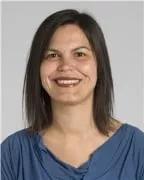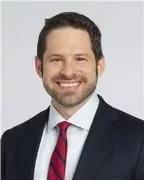
As someone who went through medical school without having a career counselor at her disposal, Stacey Jolly, MD, appreciates that her position as Director of Career Advising at the Lerner College of Medicine helps ease the students’ transition from medical school to residency. She aims to provide perspective to students based on her own experiences: a five-year medical education, changing career specialty choice during medical school and more than a decade as a clinician investigator.

Image content: This image is available to view online.
View image online (https://assets.clevelandclinic.org/transform/e1b5ae79-a64a-4e0f-b103-6e03f3c9e4e3/tacey-jolly_jpeg)
“Helping a student navigate that process of figuring out which specialty they want to go into and which programs to apply to, and helping them practice interviews and bolstering their confidence in their abilities is such a rewarding experience,” says Dr. Jolly, Associate Professor of Medicine. “It’s a privilege to help them reflect on their experiences and abilities, explore opportunities, and then guide them in the right direction. There’s so much more out there than they know!”
An important resource within CCLCM, career advising is meant to help students in their journey to find the medical specialty that will provide lifelong learning and meaning for them. Career advising begins when medical students start their first year and continues until the time they graduate, and it sometimes involves helping students work through challenges they might face during their time in medical school.

Image content: This image is available to view online.
View image online (https://assets.clevelandclinic.org/transform/c2409a66-f08b-492a-86be-b28d34b6071a/aul-c-bryson_jpeg)
As Assistant Director of Career Advising, Paul Bryson, MD, Associate Professor of Otolaryngology-Head & Neck Surgery, interacts regularly with the students as well. Both he and Dr. Jolly meet one-on-one with each class of 32 students to get to know them as well as review their assessments to gauge their fields of interest and probe on fields they might not have considered.
“My own journey into my specialty had so many people who lent me their time and their ear, and provided some basic connections that helped me make my decision and meet people who ultimately shaped my career path,” says Dr. Bryson. “I’m delighted to be able to return the favor to our students as they navigate this part of their career.”
The first- and second-year students meet individually with Drs. Jolly and/or Bryson at least once a year, and they meet with the third-year students to set up their research year as the students’ clinical schedules allow. Most meetings during the students’ fourth year are conducted through email; however, as the students start solidifying which specialty they’re going to apply to, extra meetings may be required.
During the students’ fifth year, Drs. Jolly and Bryson continue to meet one-on-one with the students as well as review personal statements, residency applications and supplemental applications to residency, and simply help them along the way as much as they need.
The pandemic, for example, made for a difficult transition from in-person residency interviews to virtual. Having to pivot quickly, fourth- and fifth-year students, who ordinarily travel to hospitals around the country for residency interviews, had to adjust to interviewing virtually.
Virtual interviews proved challenging for students. They felt hindered by their inability to experience the hospitals and meet the staff in person. Because where medical school graduates go for residency training is a serious commitment —they will spend several years of their lives training at these hospitals — making a decision based on a virtual interview felt risky. Students also worried that they couldn’t make their best impression through a virtual interview.
Drs. Jolly and Bryson now guide students on how to get a feel for the environment and culture of a hospital solely through asking key questions. They also actively work with students to help them put their best foot forward, regardless of whether they are interviewing virtually or in person.
Meetings with Drs. Jolly and Bryson are just one aspect of career advising. Students also participate in specific programs, panels and workshops geared toward helping them to network, prepare for exams, prepare for applying to residency and practice virtual interviews. Students are encouraged to explore different core specialties at career networking events as well as connect with faculty members who practice in areas of interest and in areas with which the students maybe aren’t familiar.
Some of the most valuable advice Dr. Jolly tries to impart to students is to maintain an openness to new opportunities.
“I think students are bound to succeed in finding their specialty and career choice if they rely on their curiosity and self-reflection skills. And although their specialty or career path may change over time, maintaining a positive growth mindset will serve them well throughout their careers,” she says.